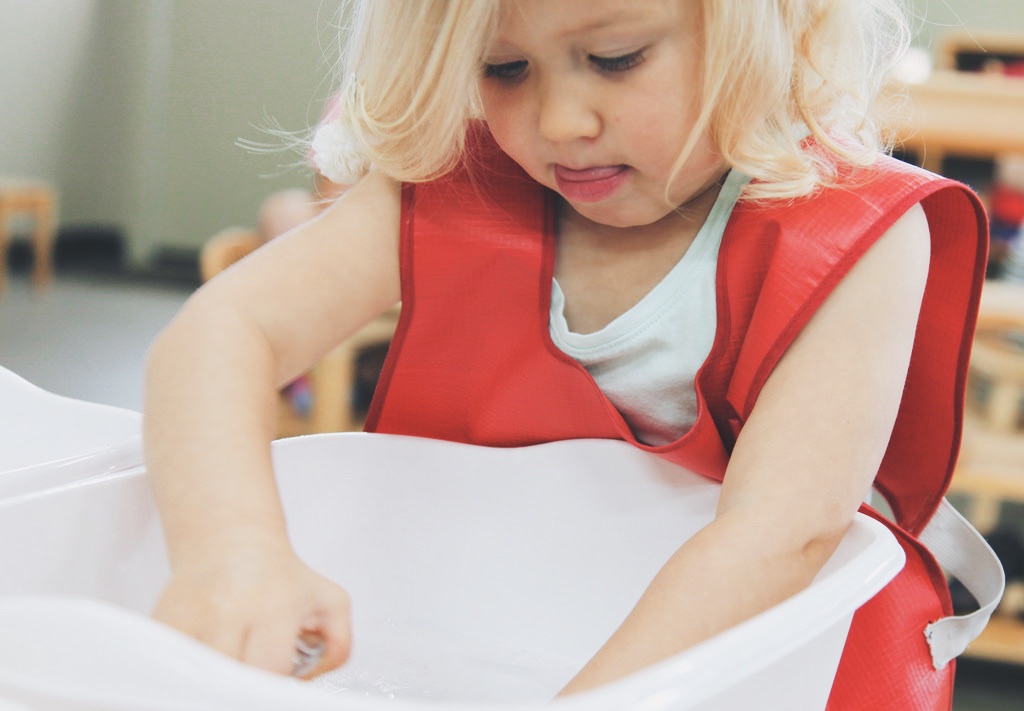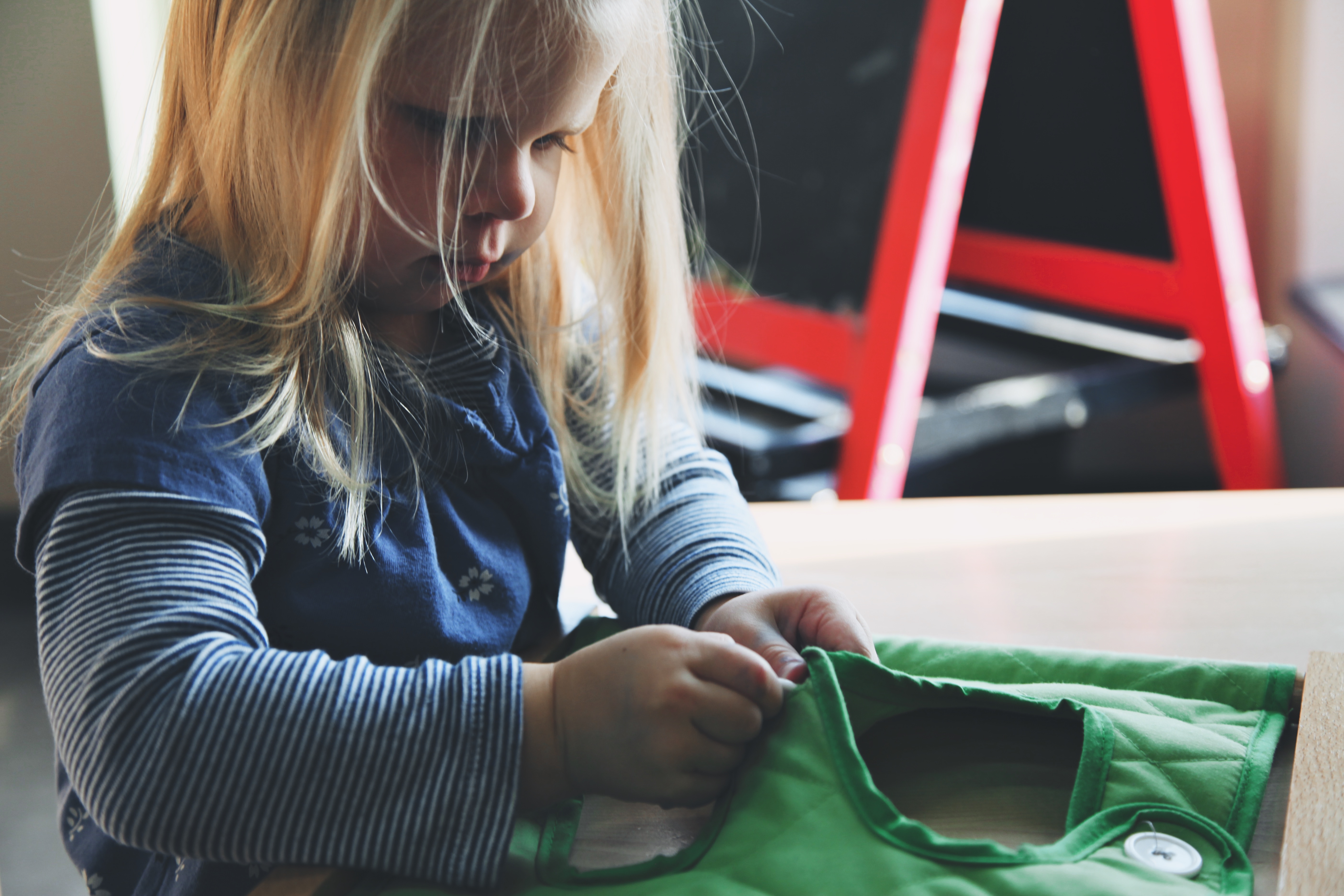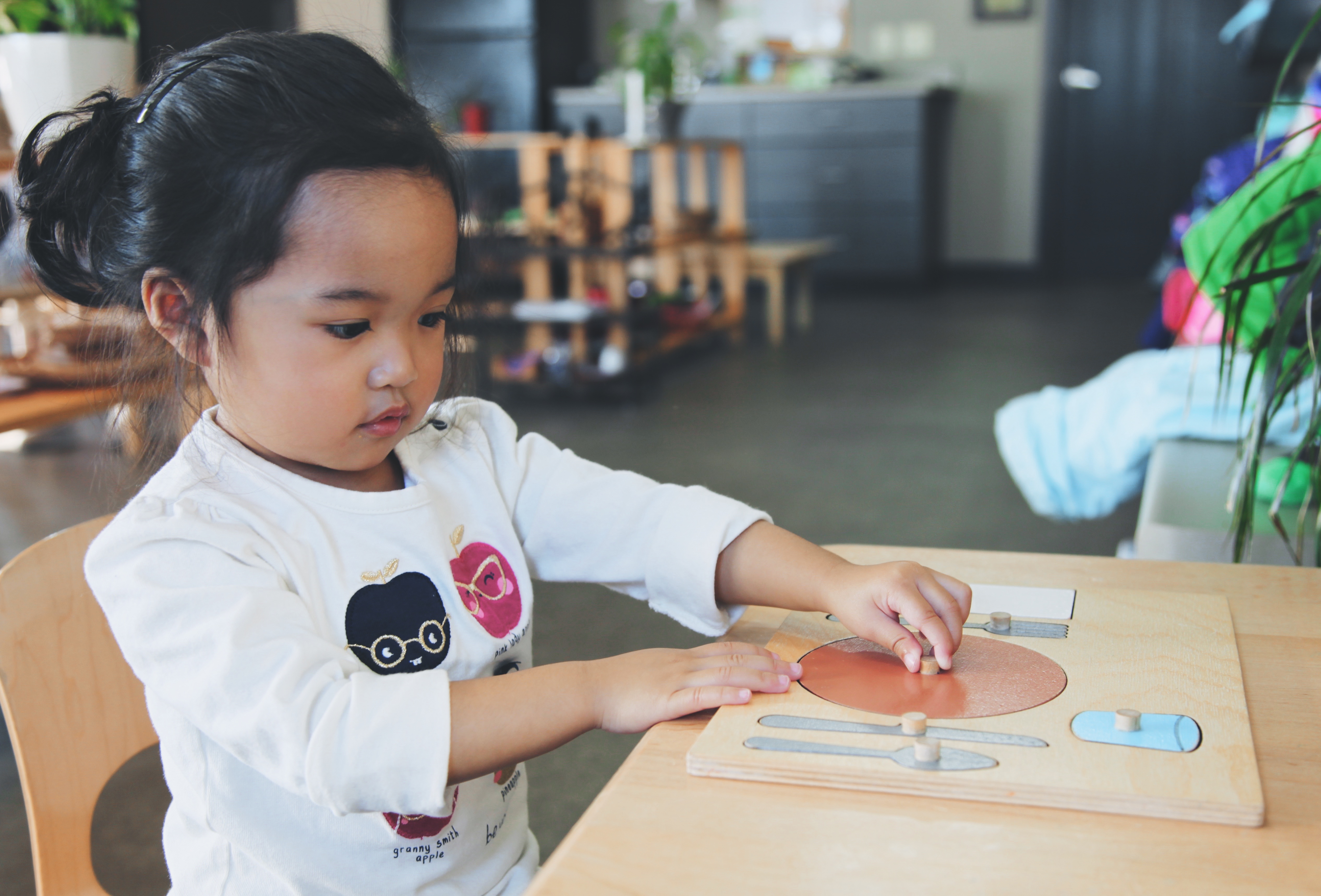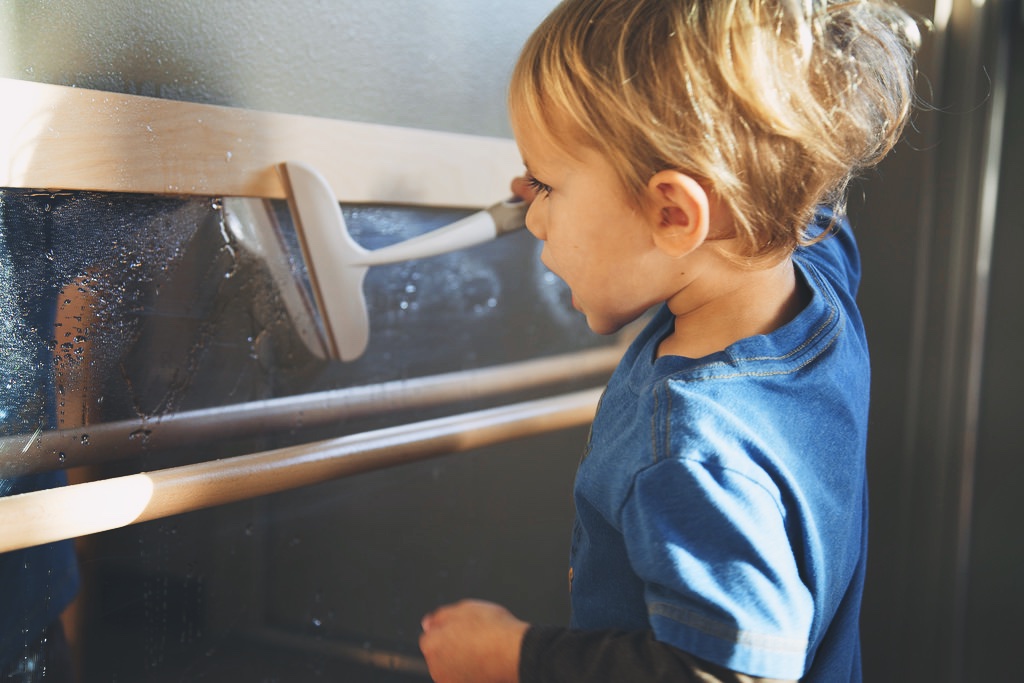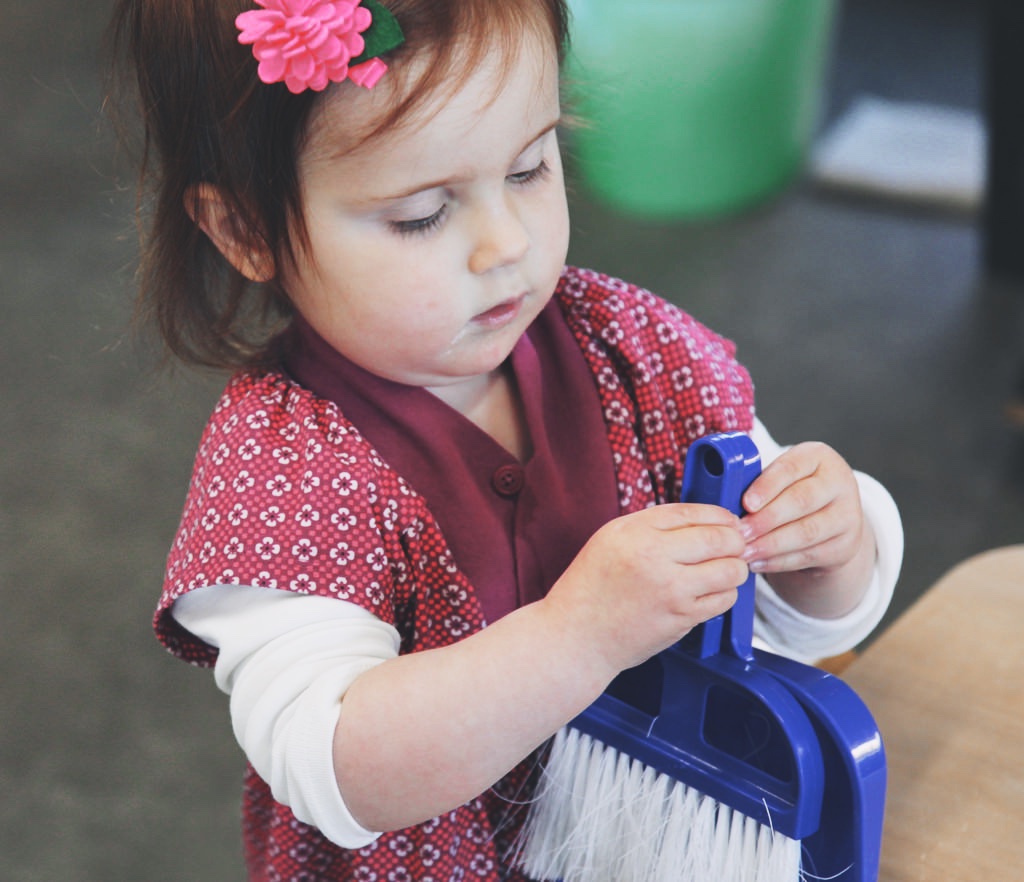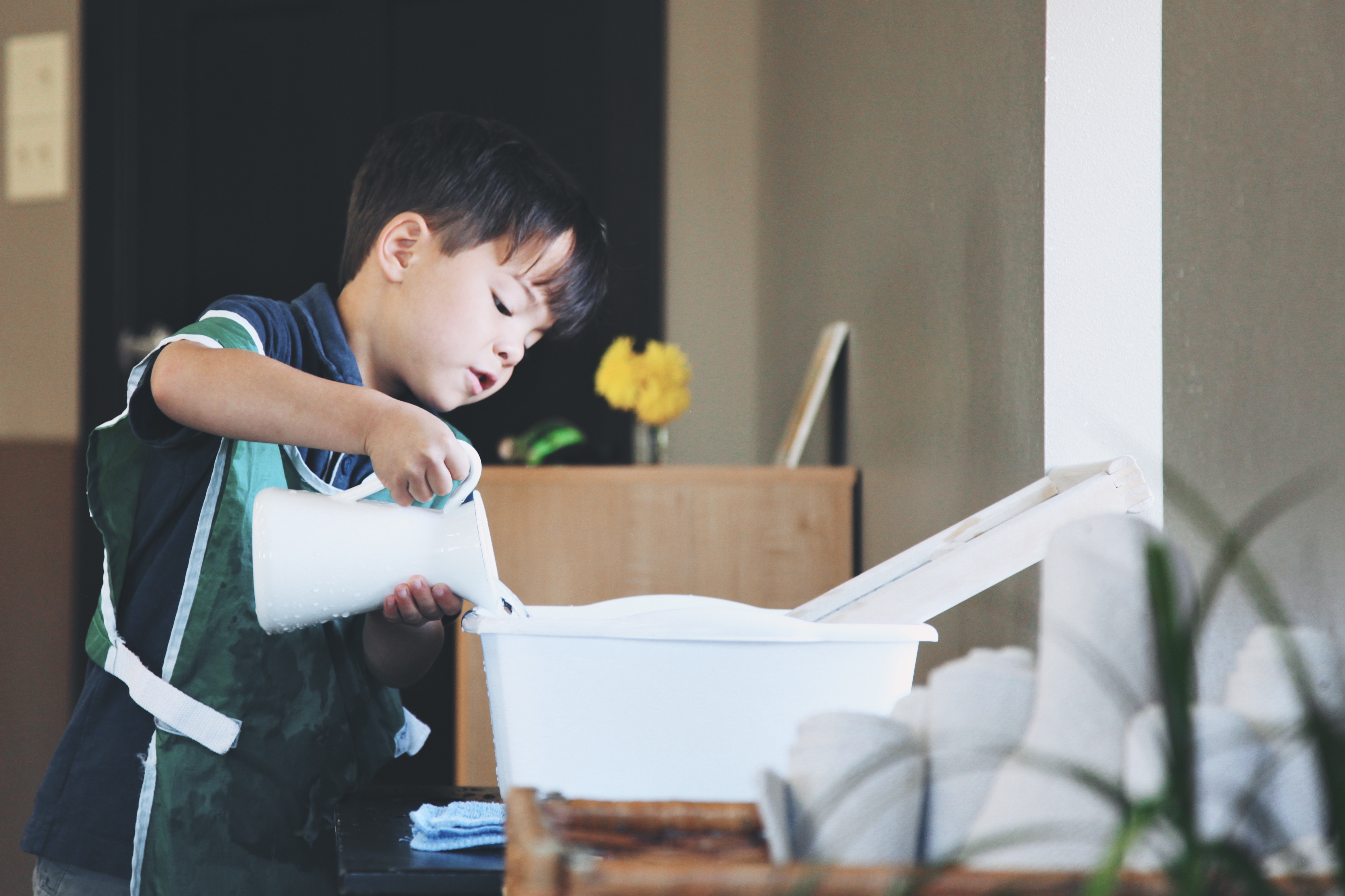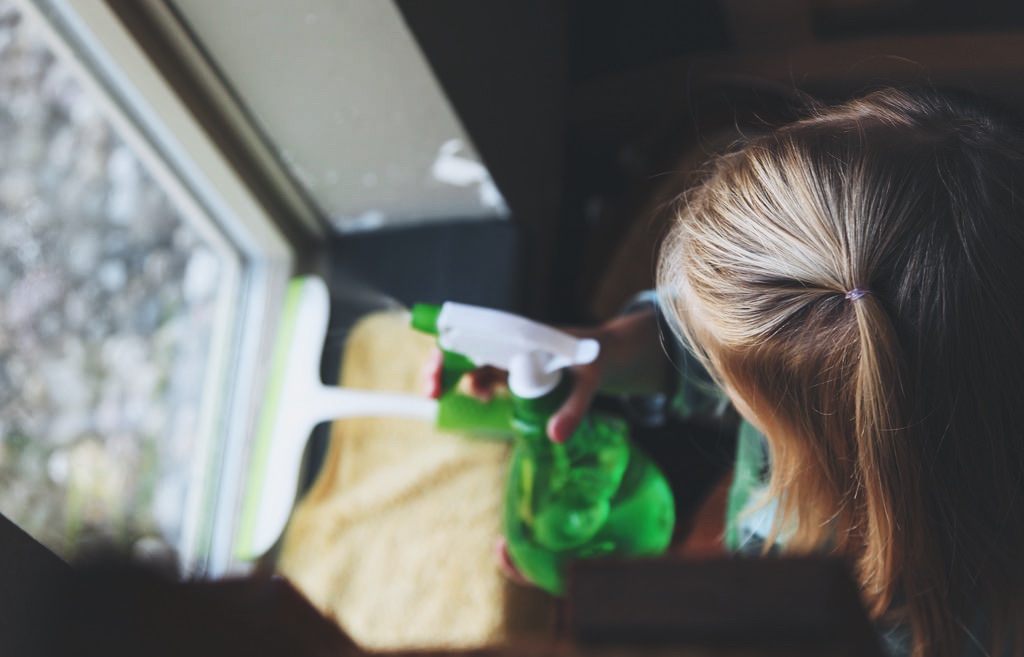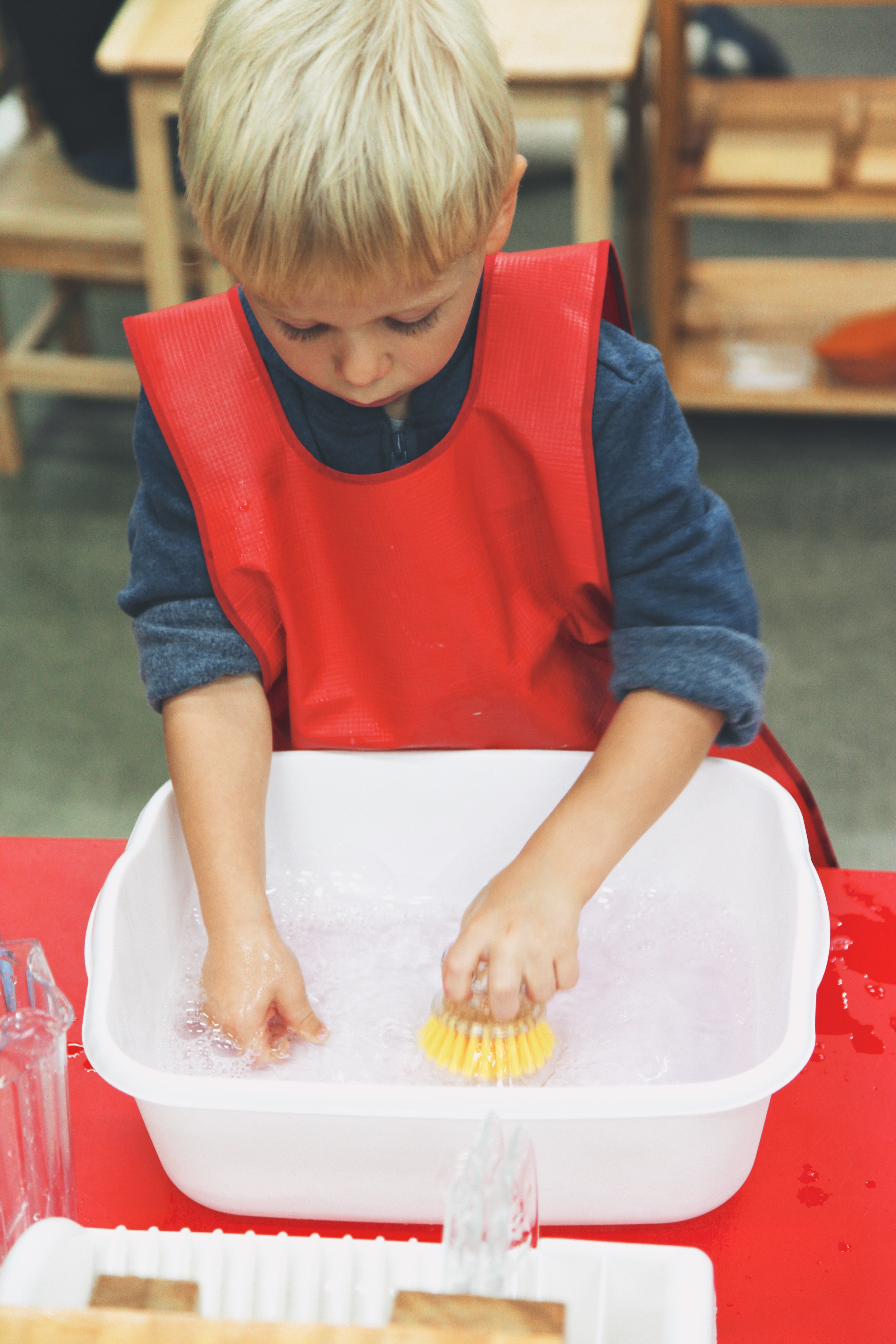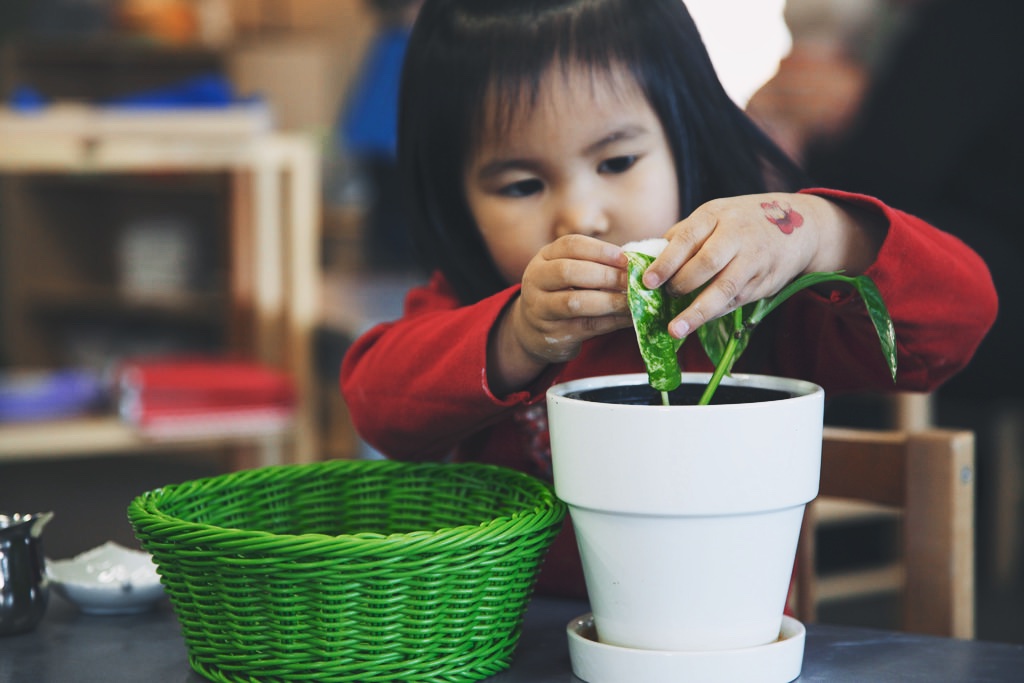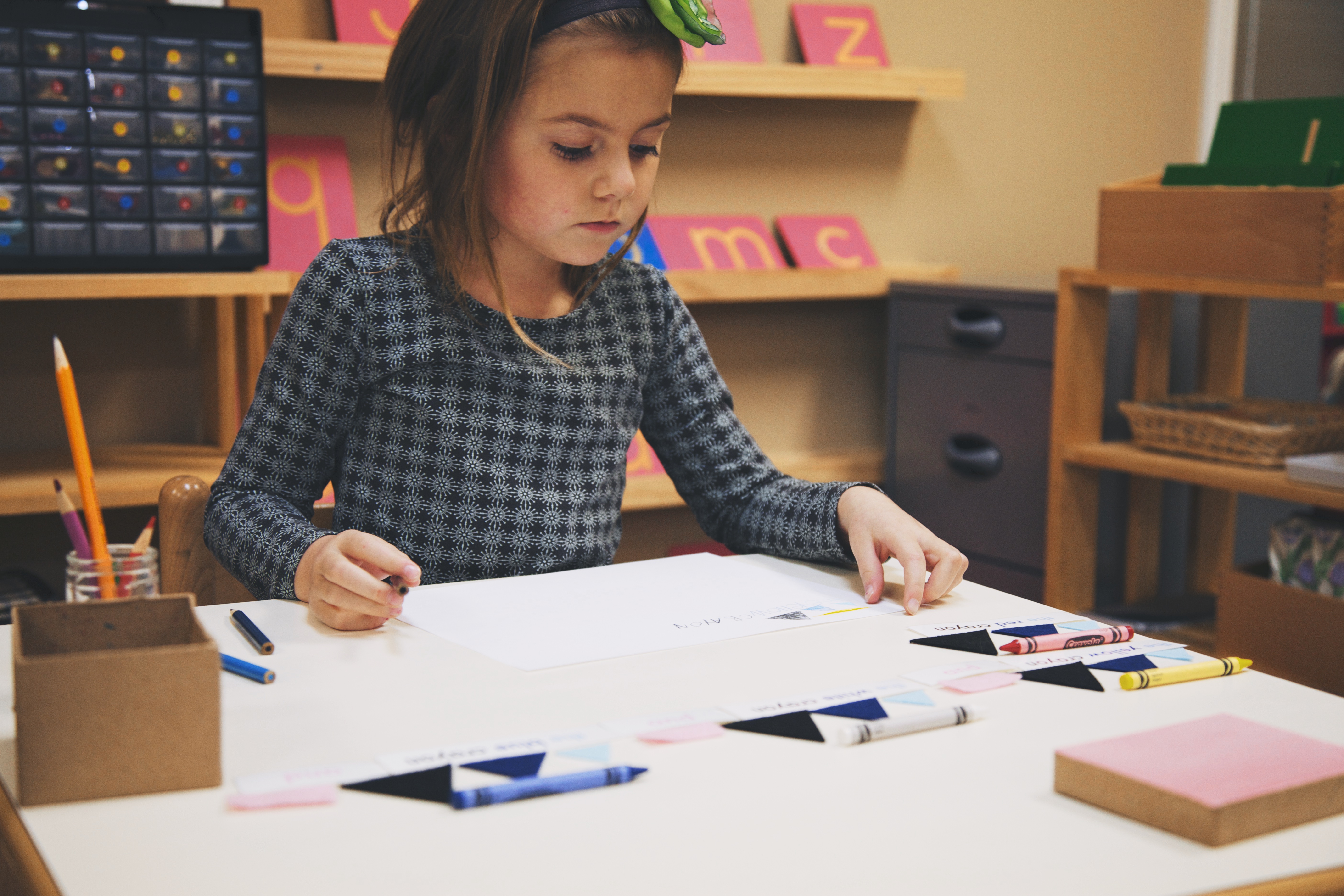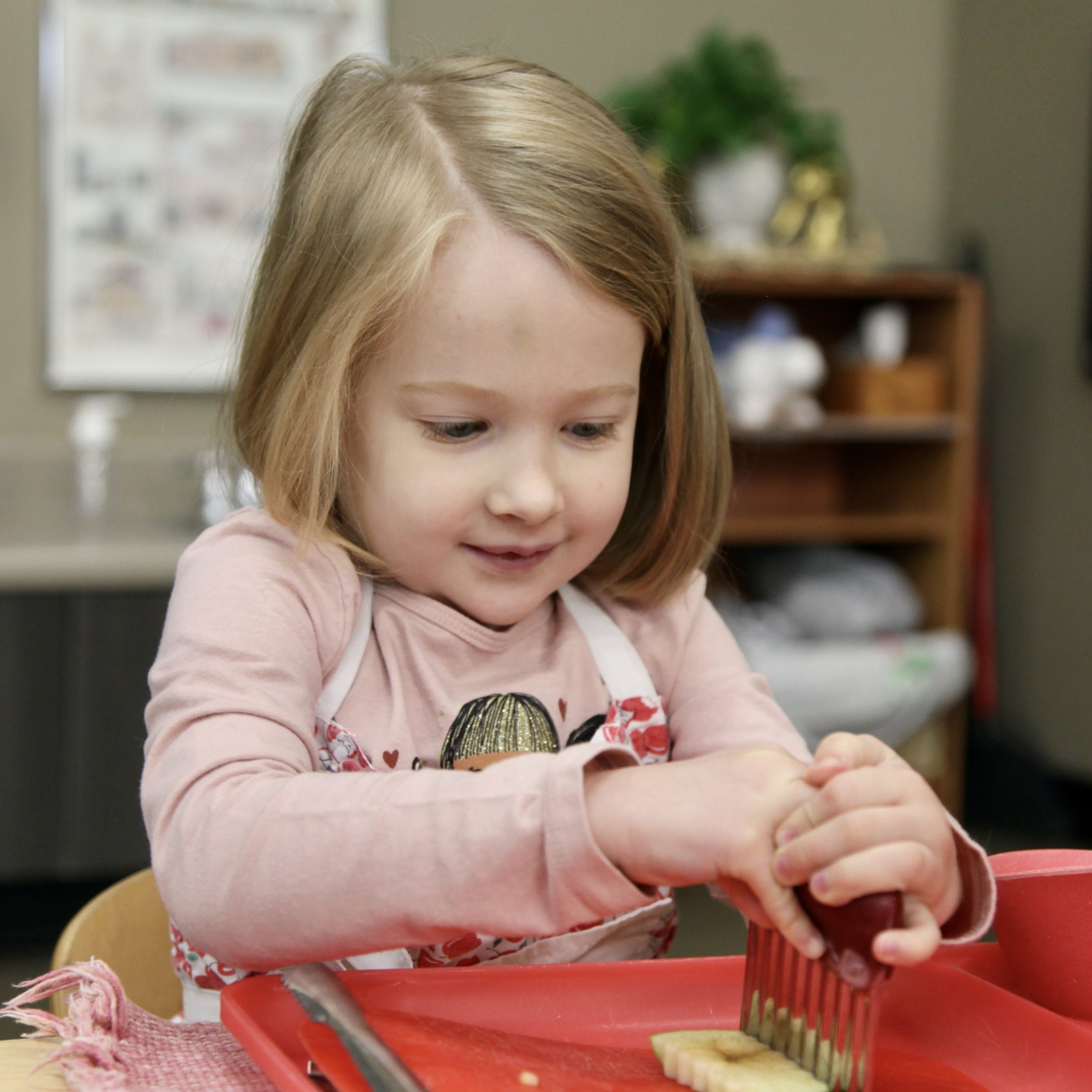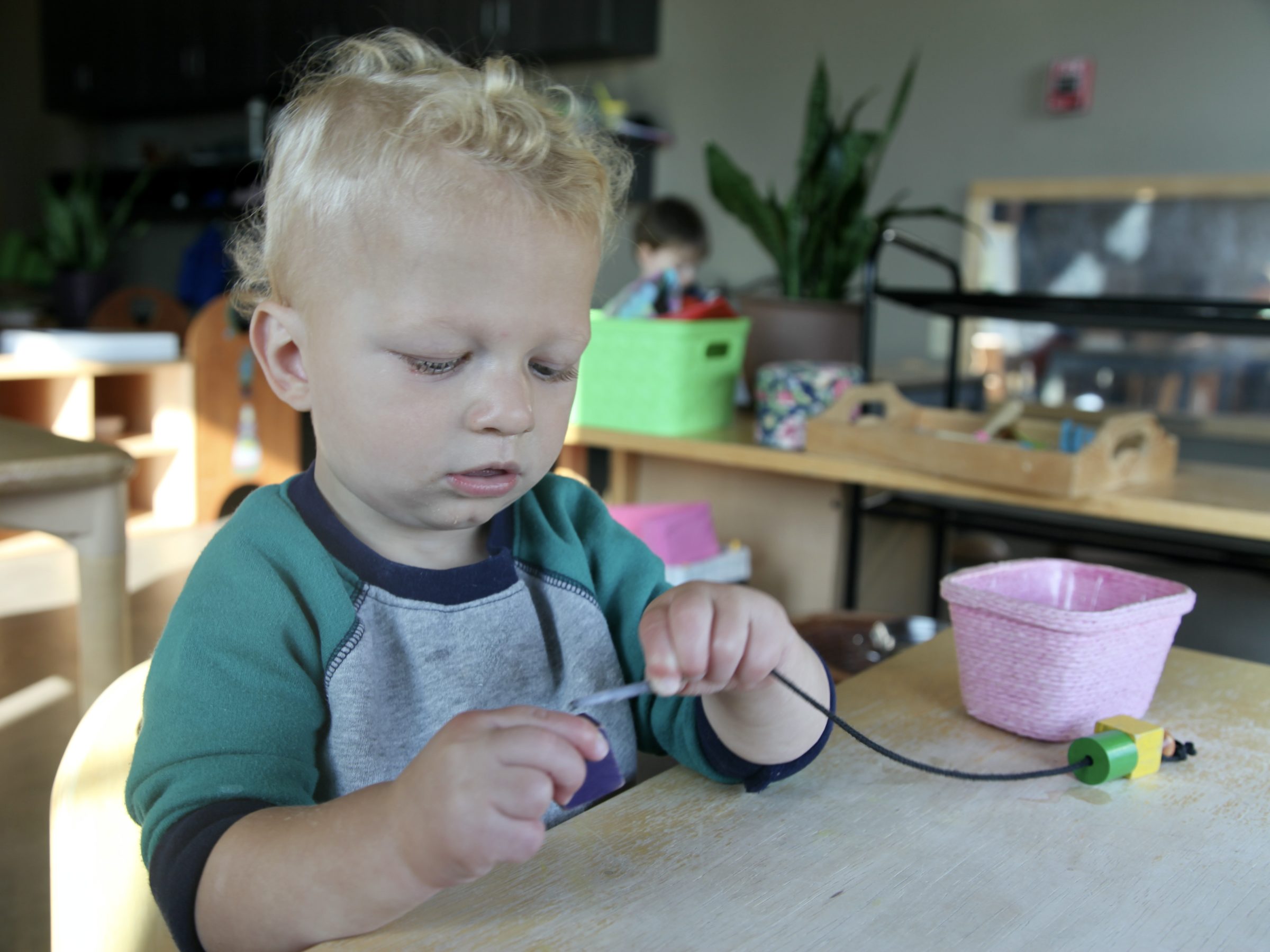A Montessori Life
Thoughts & Reflections
Parent Education is one of our favorite parts of this work. Parents are a child’s first teachers, and a parent’s role in their child’s life is unsurpassed.
We often get questions like, “What more could I be doing at home?” or “My child hangs up her coat at school, but never at home; why?” “How do you keep it so clean here?”
“A Montessori Life” was the theme of our first Parent Education of the year. The beginning of the year is a natural time to try something new, to figure out a new system, or to change a routine in a way that make things easier. We thought we’d share some tools we use in the classroom, particularly ones that lend themselves naturally to home life, and might even simplify things.
Of course, our goal is never to create more work, and the most important thing a parent can do for their child is be there. If any of these ideas seem like they might fit in nicely to your family’s life, wonderful! If any seem like more work than helpful, please do what seems best for you. You know your child best!
Routine
We fall into routines without even noticing them. We roll out of bed and into the shower and are halfway through our first cup of coffee before we’re even awake and alert.
Being aware of setting up a routine for your child can be helpful to her. Children love predictability, and can be more cooperative, even independent with some aspects of their care, if they know what’s coming next.
Is your child’s routine to eat breakfast and then get dressed? Does your child know after breakfast, getting dressed, and brushing teeth he has a little bit of time to play before heading out the door? If you follow the same routine every day, you might be surprised by little moments of independence; you might see your child by the door putting on shoes as you grab her lunch and start to call for her to head for the car.
Routines at the end of the day can be calming. After a bit of playtime while you prepare dinner, do you eat together, take a bath, read stories, and lights out? Is there a system that works better for your family? It can be helpful to reflect on what will lead to the greatest success for your child, smoothing out those bumpy parts in the day.
Good routine can make even times of transition and a bit of chaos smooth and predictable.
Responsibility
Speaking of routine, is it your family’s pattern to do laundry on Saturday afternoon? Do you always set the table before serving dinner, and load the dishwasher immediately afterward? Does your child take a lunch to school every day?
These are nice opportunities to involve your child in helping out — helping himself, and helping the family.
Sometimes encouraging responsibility and independence requires only a minor change, and pays amazing dividends. Does putting a small basket in the bathroom where your child takes a bath every night mean you’re no longer picking up a trail of clothing down the hall? Does putting a hook near the door mean your child has a place to hang his coat, so it’s not on the floor, and so you’re not looking for it as you’re racing out the door in the morning? Perhaps setting the plates, flatware, and napkins on the table means your child can set the table and gather the family for dinner as you’re finishing dinner. A cloth napkin makes takeout so much more delicious, and children love to feel like they’re contributing!
For everyday routines, are there ways your child can help? Try incrementally increasing responsibility based on your child’s ability and interest. Say you make toast with nut butter and banana for your child for breakfast. A toddler can push down the button on the toaster. As they age, can she spread the nut butter? Can he slice the banana? Can she cut the toast into quarters, perhaps counting how many pieces she has (math in everyday life!)?
You can do the same for lunch. Even the youngest child can be responsible for carrying their own lunch box into school. Then, for carrying it out to the car when you leave in the morning, and unpacking containers at the end of the day. Then for helping to select if it will be a ham and cheese or peanut butter sandwich, cucumbers or carrots, grapes or apples. Eventually, sooner than you think, packing a lunch is off your list, and your child understands more about health and nutrition, planning ahead, menu planning, and responsibility for their belongings.
Behavior
There are certain behaviors or habits we frequently hear parents wanting their children to have. Saying “thank you” is so common. How do I get my child to say thank you?
In the classroom, we have what we call Grace and Courtesy Lessons: opportunities to practice skills we’d like to see in the classroom. This can be, what to do when you need to blow your nose, how to ask for help, how to offer a compliment.
You can use this tactic to encourage any behavior you’d like to see from your child! The most important piece is to practice the skill independent of when it’s needed. Let’s look at an example.
For instance, say you’d like your child to say thank you any time she’s given something. First, we adults are role models, so if I’d like a child to say thank you, I must remember to always say thank you when a child might see or be listening to me.
You can practice this skill around the dinner table, or in the car, or even while playing. “I’m going to show you what you can say when someone gives you something.” Have your child or your partner, or even an older child, hand you something, and say “Thank you!” Seems silly, right? It’s absolutely not! Give your child the chance to practice, “Would you like to try?” Play frequently, so it becomes a habit. Remember to keep modeling, even when you feel like your child doesn’t need to practice.
It’s game time! Your child is given a sticker at the dentist. Give him a minute to answer. If he doesn’t respond right away, perhaps call some attention to the item, “Wow! Dr. Box gave you a sticker!” If it still doesn’t register, remind your child, “This is one of those times you could say thank you.”
You can practice with your child any skill you’d like them to have, such as introducing themselves, saying no thank you, politely refusing a hug, or holding the door for others. What skills would you like your child to have?
Tidiness
Prospective parents are often struck by the beauty in a Montessori classroom, and floored when they learn the children are the ones responsible for this beauty.
New families are sometimes surprised when their young child comes right in and hangs up their coat, and always returns a material to the right place.
Naturally, there is a bit of confusion when always tidying up after yourself doesn’t necessarily make its way home as a transferrable skill right off the bat.
There are so many reasons why children tidy up after themselves at school. We’ll let you in on a few secrets.
First, being tidy is part of belonging to this class. The children who were already here do this all the time, and I want to be like them, so I’m going to tidy up, too. That positive peer-pressure works wonders.
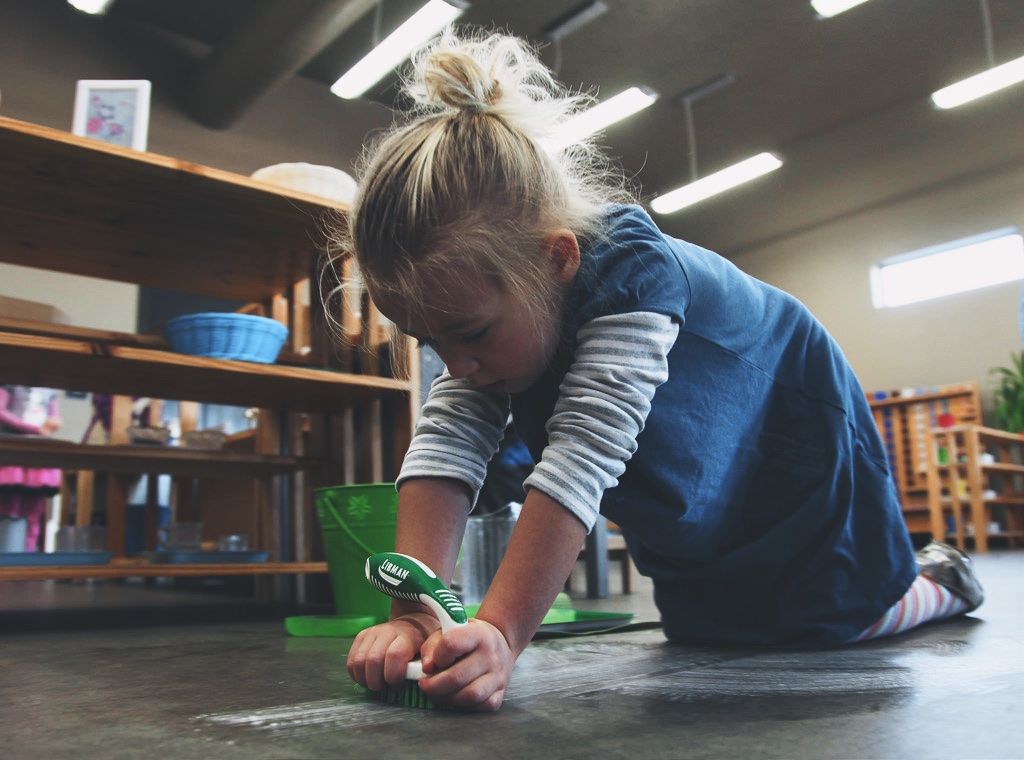
As an adult, I am a role model for everything a child does. This means when I’m done reading a book, I can’t leave it on the couch where I was sitting, I can’t leave my plate on the table, I can’t spill water on the counter and think, “I’ll just clean it up later.” I always have to do the best example I want children to emulate. Children will always do what I do, not what I say.
Second, perhaps the easiest part of classroom life, is that there is a limited number of materials, and everything has a home. It’s easy to return Bead Stringing to the shelf, because it goes in one spot. Items are stored on shelves rather than in bins, and are limited in number.
This is a tricky one for families. Children are showered with gifts at birthdays and holidays, and unexpected treasures end up in the cart on a trip to the store. It can be hard to find a home for everything, which means it can be hard for children to tidy up when they’re done playing.
Are there some toys, books, or clothes a child has outgrown? Can these be donated or stored away for a younger sibling, cousin, or friend? If every item is a treasure, is there a possibility of creating a “library” of sorts, in an attic, garage, or closet, so one form of coloring can be out at a time, but crayons are traded for markers, which are later exchanged for colored pencils, rotated occasionally as a parent notices interest waning? Can a selection of ten books be made, and on Saturday we’ll trade these for ten different ones? It can be easier to put things away if the selection isn’t overwhelming.
In the classroom, have a third benefit to keeping things tidy and under control. Children have the option to work at a small table, or at a rug on the floor. Things don’t get left out, because it’s hard to forget your work when it’s sitting on a table waiting for you.
When a child is playing on the floor, it’s easy to get distracted by a snack, or the TV, or what a sibling is doing, walk away, and the toy or activity is forgotten. Is there a possibility to put a small table or rug in your child’s space? If that’s where they go to color, or to build, or to explore, it might be easier to notice when something is left out because of one of those natural distractions of family life, and help a child notice and tidy their work.
Time
The internet is full of advice. Magazines provide ideas for ways to supplement your child’s learning. A friend recommends a service he’s used to help his child get a leg up on reading. There’s a lot of pressure in parenting, and there are a lot of ideas floating around for what we all could be doing better, more of, differently.
Please don’t ever undermine yourself — you are your child’s Most Favorite Person. You are their Whole World.
The most amazing gift you can give your child is time. Time — something there never seems to be enough of. It doesn’t need to be a whole afternoon. It doesn’t need to be one parent’s full-time job in order to be enough. Whatever you’re able to give, that’s Enough.
Can you have a conversation with your child on the way to school? Do you have a few minutes to sit down with your child while she eats breakfast and you enjoy your coffee? Do you both look forward to that quiet bath time at the end of each day? Can you read a book together?
This is such a great gift. Every minute is relationship-building, a message to your child that she is important, that you value what he has to say. Every conversation builds language. You’re modeling syntax and grammar, you’re using new vocabulary appropriately, and your child’s language will grow in parallel.
“Please don’t ever undermine yourself — you are your child’s Most Favorite Person.”
Five minutes, thirty minutes, your attention and ears while you’re preparing dinner, whatever you’re able to give, this is the greatest gift you can give your child.
…
We hope these notes from our first Parent Education of the year are helpful. Maybe some dovetail nicely into your schedule. Maybe some spark a different idea that works better for your family. Take whatever works, leave the rest. You’re being a Parent, which is enough.
Written by:
Charlotte Snyder
